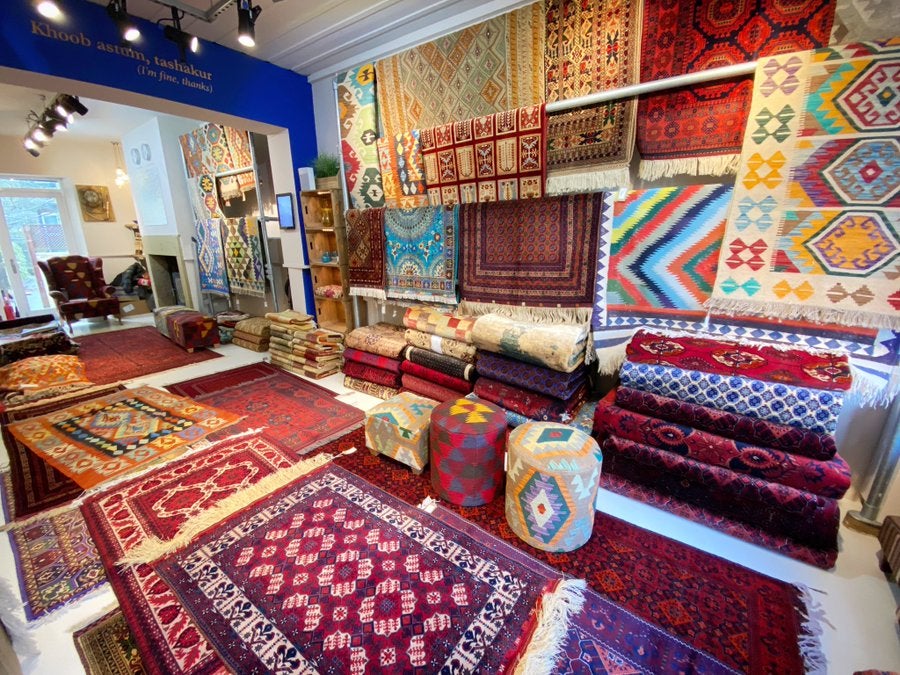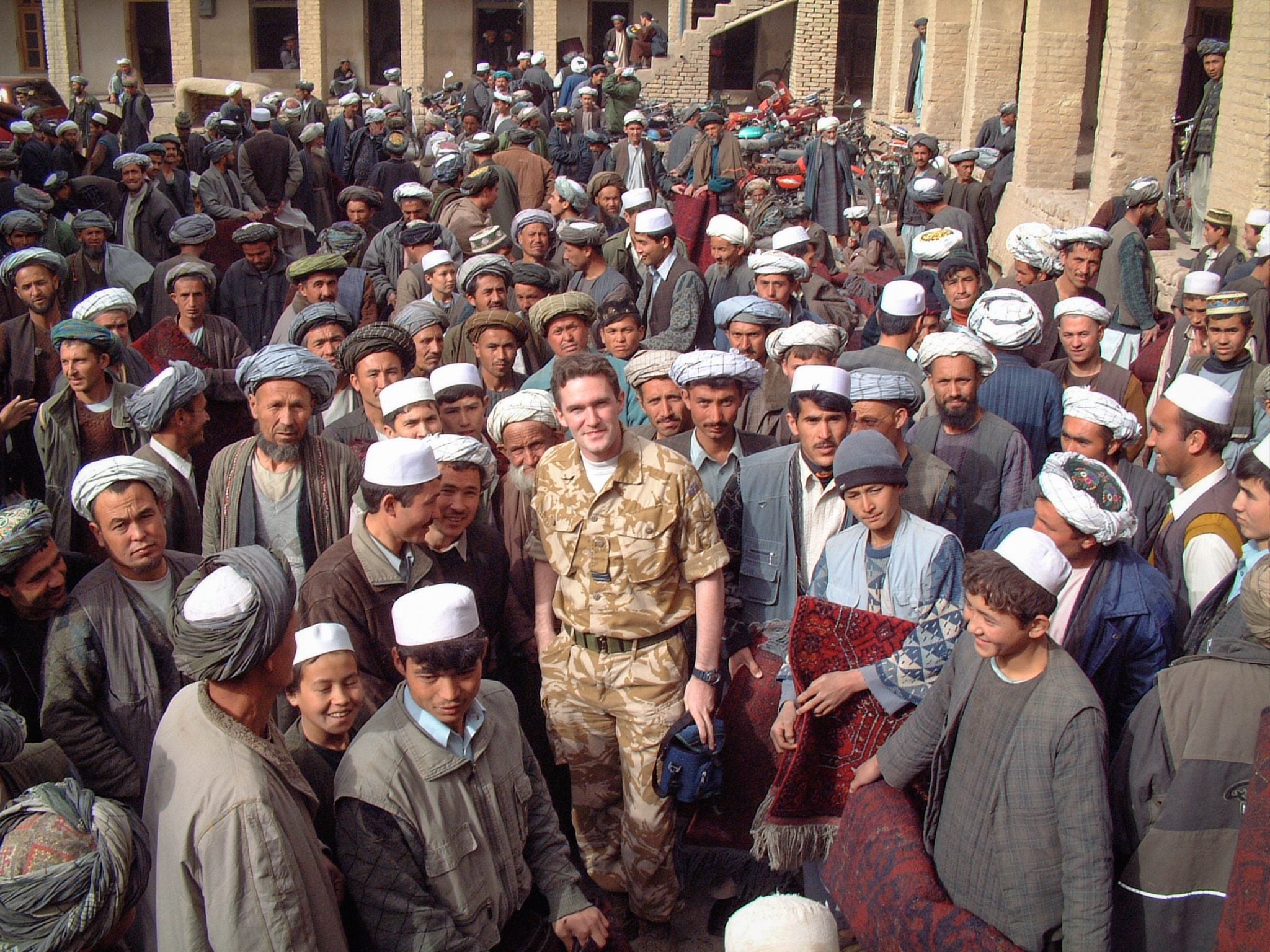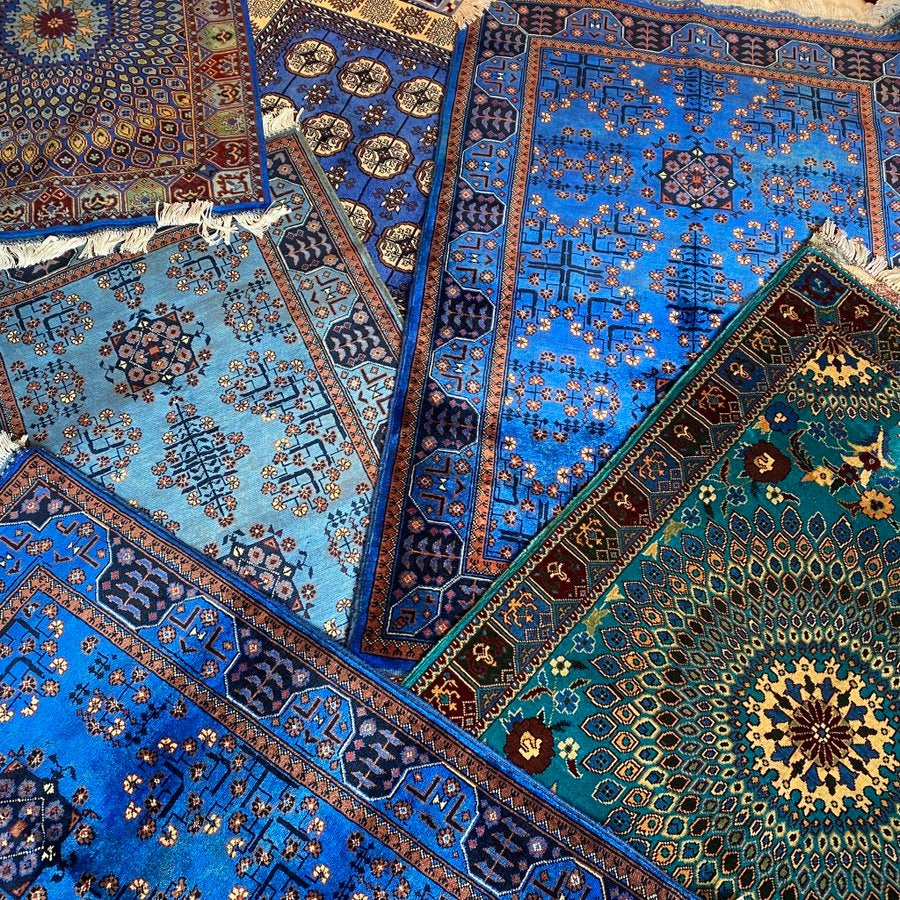The RAF veteran who sells Afghan carpets in Yorkshire
James Wilthew served in northern Afghanistan and now runs a fair-trade business selling rugs from the region

The article first appeared in our partner site, Independent Persian
A British Royal Air Force veteran has opened a shop selling carpets woven in northern Afghanistan. A love for Afghanistan and its people inspired James Wilthew to open a shop in his home county of Yorkshire after he returned from serving overseas. All of the products are made in Afghanistan and he provides healthcare as well as income for his carpet weavers.
According to Yorkshire Live, the British veteran, who served in Bosnia, Iraq, Kuwait, Qatar and Jordan, considers his time in Afghanistan to have been the most valuable. Between 2003 and 2004, he was in charge of the Provincial Reconstruction Team in the northern city of Mazar-i-Sharif. This is where he met carpet sellers and weavers and was moved by their simple and artless hospitality.

Speaking to Yorkshire Live, James explained, “The Afghans have a really cheeky sense of humour. They are probably some of the poorest people I’ve met but they are so welcoming".
This British soldier who formed friendships with merchants and weavers in northern Afghanistan, started off by buying 42 hand-woven Afghan carpets. He sold half of them to pay for his wedding costs and thought no more of it.
However, twelve years later, one of his friends asked if he could find him carpets similar to the ones James had at home. This became a pivotal moment for him and he started thinking about trading Afghan carpets.
James reached out to his old friends in Afghanistan on social media, using pictures he had taken with them to trace them. He wanted to start trading in carpets properly. After long hours of research about selling and buying Afghan carpets and bringing them to Britain legally, he was finally able to revive an Afghan carpet shop in Yorkshire which had gone out of business owing to the pressures of the pandemic and Brexit.

The business was up and running within three months. He now has many well-known customers; ranging from singers to actors, models and TV hosts. But he says that he didn’t open the shop just to get rich but because he wants to help and support Afghan carpet weavers who he says are among the most oppressed and marginalised in Afghanistan.
James explains that carpet weavers working for him not only make an income but also receive medical care and physiotherapy. Carpet weaving is a hard task and has a heavy physical toll on the weavers.
His business has fair trade credentials, he says, adding that he monitors the working conditions of weavers to ensure they are up to ethical standards.
Carpet-weaving is one of the oldest and most valuable crafts in Afghanistan.
Afghan carpets are renowned for their delicate designs, intricate knots and high finish. The use of hand-woven wool and plant-based colours give them a distinctive look.
However, due to a lack of trading options and poor investment, carpet weavers send their products to Pakistan at a low price. Often, the carpets are packaged as Pakistani goods and sold for thousands of dollars in Western markets.
Reviewed and proofread by Tooba Khokhar and Celine Assaf
Join our commenting forum
Join thought-provoking conversations, follow other Independent readers and see their replies
Comments
Bookmark popover
Removed from bookmarks